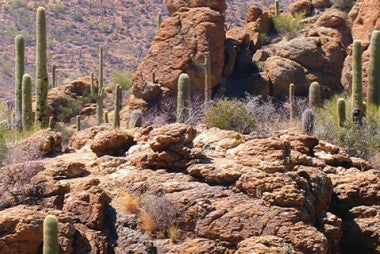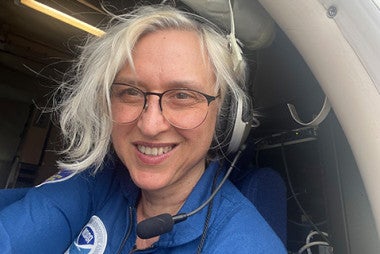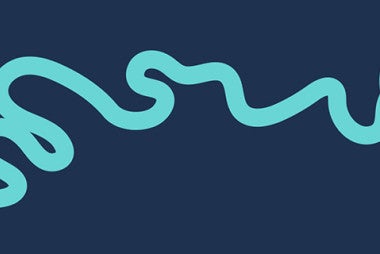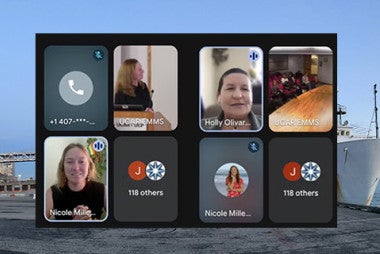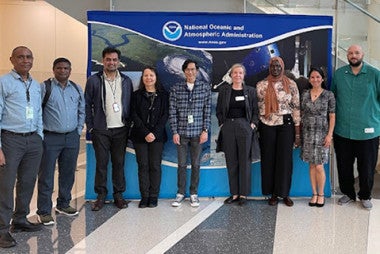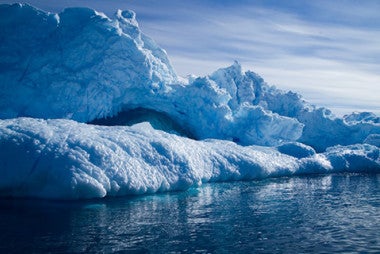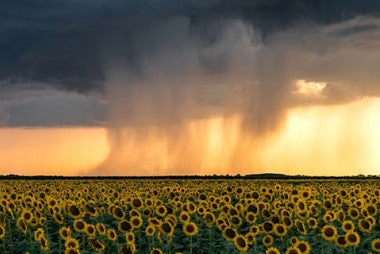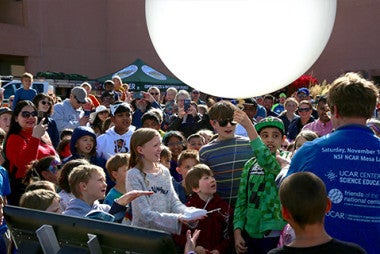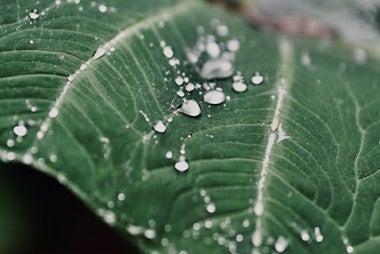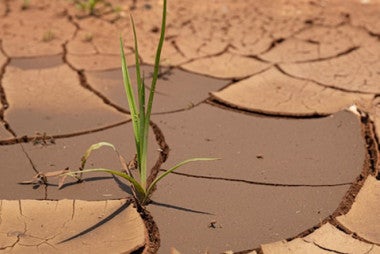Fortifying the Fellowship Experience
The overarching purpose of the NOAA Climate & Global Change Postdoctoral Fellowship is to help create and train the next generation of leading researchers needed for climate studies. This program focuses on observing, understanding, modeling, and predicting climate variability and change on seasonal and longer time scales and our scientists do so across a wide variety of Earth system science fields. To maximize their fellowship experience, CPAESS does its best to connect our fellows with early career-building opportunities. This goal has manifested itself in a couple of ways this year.
First, in conjunction with our NOAA Climate Program Office partners, we have created a seminar discussion series that provides our fellows with numerous opportunities to network, learn about each other’s research, and better understand the work and research that NOAA is executing across its many offices. This past January, Dr. Laura Larocca (Class 31) gave a presentation on her fellowship research “An Arctic-wide assessment of glacier and ice cap lifespans.” In March, we head a Fellow Meet and Greet for researchers to introduce themselves to each other. Then in May, Dr. Henri Drake (Class 31) spoke on “Parameterization of Bottom Mixed Layer Eddies and Their Impact on Climate.” Along with Dr. Letti Roach (Class 31) who shared her research on “Asymmetry in the seasonal cycle of surface air temperature.” During this May meeting, fellows were treated to guest speaker Dr. Gregory Johnson, of NOAA’s Pacific Marine Environmental Laboratory (PMEL) who explained his research on the "Argentine Basin, Warming and Circulation Seen by Deep Argo."
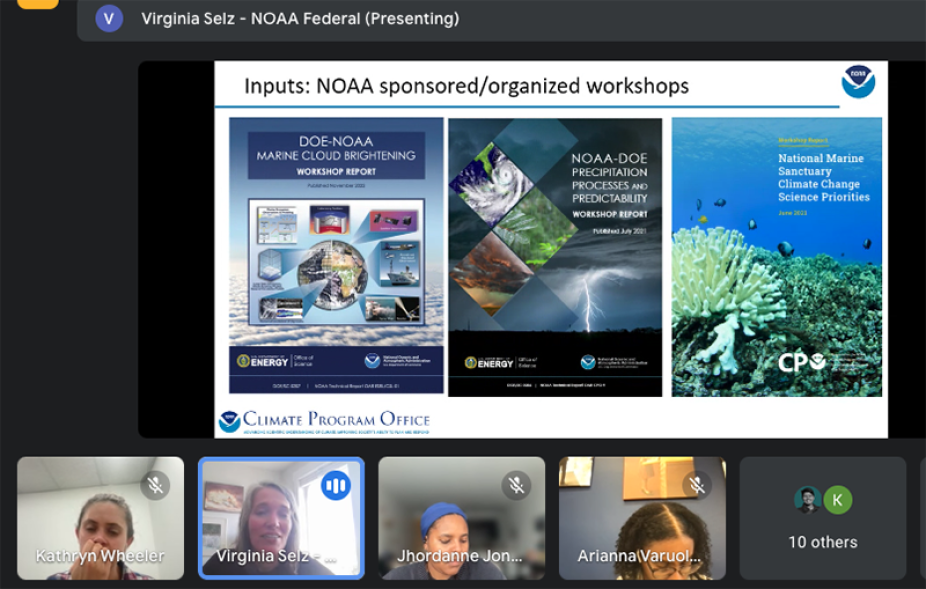
Dr. Virginia Selz, Program Manager at NOAA Climate Program Office delves into some of the work and opportunities at this office.
In September, Postdocs were engaged by Dr. Virginial Selz with her "NOAA 101" presentation which shared information about the Climate Program Office (CPO) and potential work opportunities for fellows. In October, a three-speaker panel was assembled to help give fellows information on to to apply for academic jobs. This panel included Dr. Valerie Sloan, UCAR | NCAR Lead for Lead for Early-Career Professional Development; Dr. Chijun Sun who was finishing as an NCAR Advanced Study Program Fellow and about to start as an Assistant Professor at the University of California Davis; and Dr. AlIison Lawman who is a Professor at Colorado College. These seminars have provided the postdoctoral fellows a vehicle to meaningfully engage with each other and those who might help inform their futures.
In addition to sharing their research at these seminars, Katherine Siegel (Class of 31) presented at the UCAR | NCAR Board of Trustees Meeting. The UCAR | NCAR Board of Trustees has the primary responsibility for setting UCAR's overall direction. Members are a representation of UCAR’s university consortium which includes 126 North American colleges and universities that offer research and education programs in Earth system science, ranging from meteorology to hydrology, oceanography, atmospheric chemistry, climate science, and beyond. During the Science Briefing of the Board of Trustees Meeting, Dr. Siegel shared her research on “Wildfires, Climate Changes, and the Future of Forests in the Western United States.” Additionally, We look forward to hearing from Dr. Jhordanne Jones (Class of 32) who will be sharing her research as a science highlight at the UCAR Community Prorgams All-Staff Meeting this month.

UCAR Community Programs Director Bill Kuo introduces Katherine Siegel to the NCAR UCAR Board of Trustees during the Science Highlight portion of the meeting.
We are most appreciative of the fellows' efforts to engage further with both UCAR and NOAA and get the most out of the professional development opportunities associated with this program. A special thank you to CPAESS Program Specialist Kate Rodd and Deputy Director Cindy Bruyère for creating these methods of engagement.
If you have a friend or colleague interested in applying for the NOAA Climate and Global Change Postdoctoral Fellowship please send them to our website to do so. The application deadline for the 2024 class is January 12, 2024.
